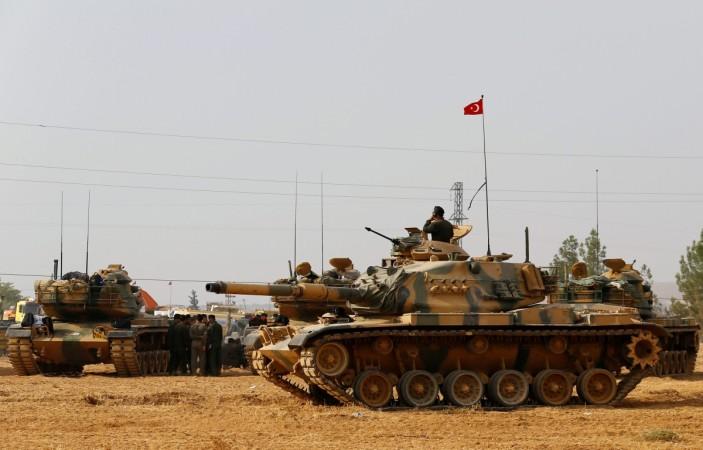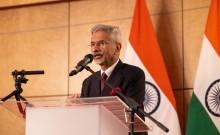
Turkey's newest eye in the sky is Gokturk-1, a military satellite, which the country claims will help it in its war against terrorism. The launch of the satellite on December 9 was witnessed by its President Recep Tayyip Erdogan and other officials.
But who are the Turks really fighting terror against? Is it against the Islamic State or Kurdistan Workers' Party (PKK), a separatist group?
But President Erdogan said that the satellite would be used for "wide areas ranging from damage assessment after natural disasters to harvest forecasts."
Turkey reacted rather slowly to the cruelty of Islamic State, even while many of the members who joined the terrorist organisation entered Syria through Turkish borders. Though Turkey was part of the US-led coalition to fight Islamic State in September 2014, it made its first attack against Islamic State targets only in July 2015.
Turkey began its tank and artillery strikes against IS targets after a suicide bomber belonging to the group claimed 12 Turks. Turkey has since made several arrests and has also claimed that it has killed several IS in its strike.
Turkey vs. PKK
Since 1984, Turkey is fighting the PKK militarily. Ankara has designated PKK as a terrorist organisation. Turkey's allies, the US and EU, have also billed it a terror organisation, but other countries do not think so.
Nevertheless, Turkey has come down heavily on the group and has its leader Abdullah Ocalan imprisoned since 1999.
The PKK are fighting for its homeland, Kurdistan and for autonomy. Kurds are a minority group in Turkey, Syria and Iraq.
Turkey regularly conducts raids for suspected members of PKK. It has shelled the Popular Protection Units (YPG), an extension of PKK in Syria. The YPG has been an effective force against IS in Syria.
The Kurds have accused Turkey of attacking it using US-led coalition as a cover. They have also accused Turkey of openly backing Islamic State and Al-Qaeda terrorists against Kurdish fighters.
Turkey has razed the ground operations of PKK, forcing them to expand from guerrilla fighting in the mountains to urban warfare. Turkey would want its recent military satellite to aid it in gathering intelligence of PKK's movements and would seek to end its armed insurgency in Turkey's south-eastern provinces. Ankara has been dependent on its allies for high-resolution surveillance images.
Turkish military satellites
Turkey wants to build an indigenous satellite by 2019 and is investing on software, design and platform. Turkey has spent about $1 billion on satellite programs. This is Ankara's second high-resolution surveillance satellite.
Ankara has planned to operate a fleet of 10 satellites by 2023, according to the report.
What we know about Gokturk-1
Gokturk-1 is a high-resolution optical Earth-observation satellite, which can scan high-resolution images (up to 0.8 meters) and features an onboard X-band digital imaging system to handle data compression, storage and downloading, Defense News reported.














